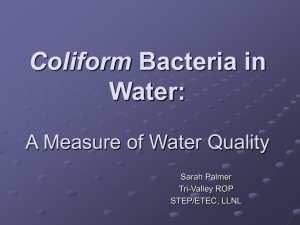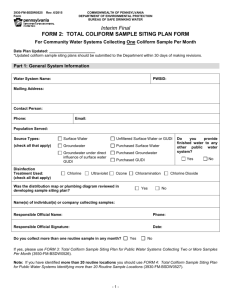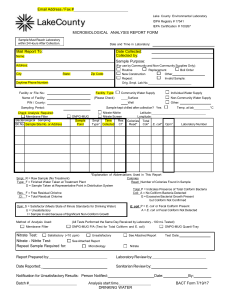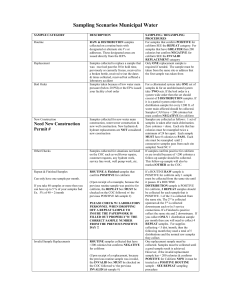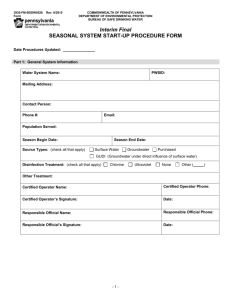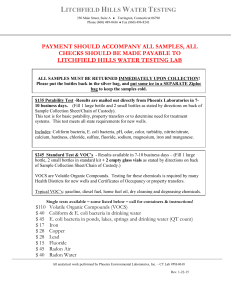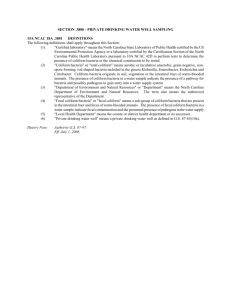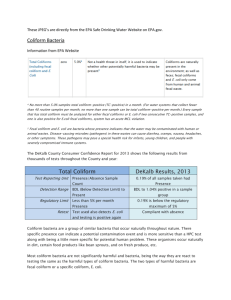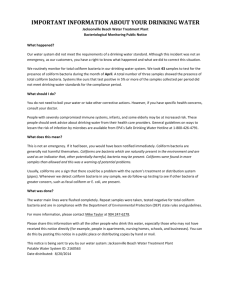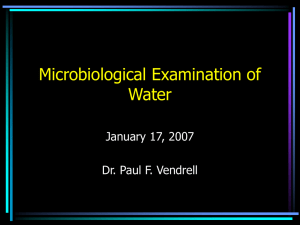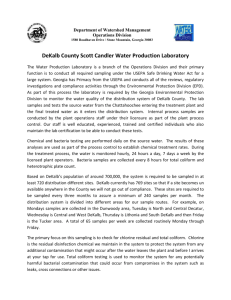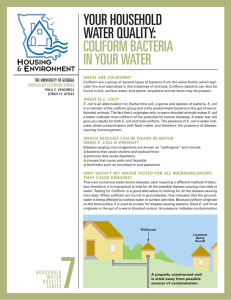Meeting Notes - Wisconsin Water Association
advertisement
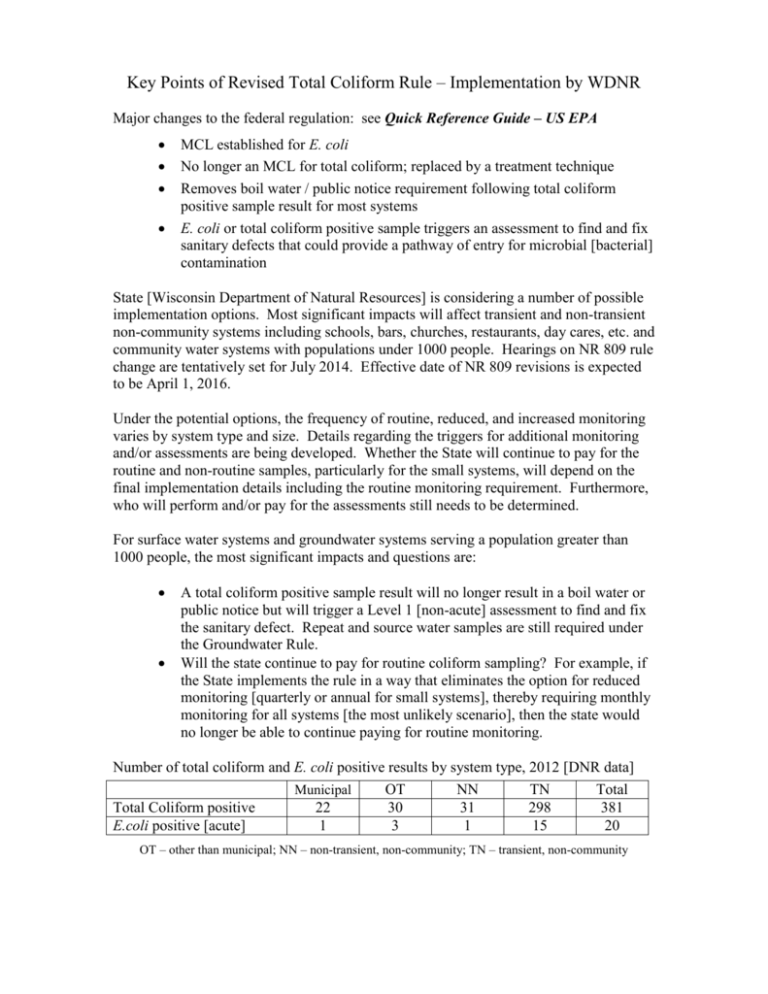
Key Points of Revised Total Coliform Rule – Implementation by WDNR Major changes to the federal regulation: see Quick Reference Guide – US EPA MCL established for E. coli No longer an MCL for total coliform; replaced by a treatment technique Removes boil water / public notice requirement following total coliform positive sample result for most systems E. coli or total coliform positive sample triggers an assessment to find and fix sanitary defects that could provide a pathway of entry for microbial [bacterial] contamination State [Wisconsin Department of Natural Resources] is considering a number of possible implementation options. Most significant impacts will affect transient and non-transient non-community systems including schools, bars, churches, restaurants, day cares, etc. and community water systems with populations under 1000 people. Hearings on NR 809 rule change are tentatively set for July 2014. Effective date of NR 809 revisions is expected to be April 1, 2016. Under the potential options, the frequency of routine, reduced, and increased monitoring varies by system type and size. Details regarding the triggers for additional monitoring and/or assessments are being developed. Whether the State will continue to pay for the routine and non-routine samples, particularly for the small systems, will depend on the final implementation details including the routine monitoring requirement. Furthermore, who will perform and/or pay for the assessments still needs to be determined. For surface water systems and groundwater systems serving a population greater than 1000 people, the most significant impacts and questions are: A total coliform positive sample result will no longer result in a boil water or public notice but will trigger a Level 1 [non-acute] assessment to find and fix the sanitary defect. Repeat and source water samples are still required under the Groundwater Rule. Will the state continue to pay for routine coliform sampling? For example, if the State implements the rule in a way that eliminates the option for reduced monitoring [quarterly or annual for small systems], thereby requiring monthly monitoring for all systems [the most unlikely scenario], then the state would no longer be able to continue paying for routine monitoring. Number of total coliform and E. coli positive results by system type, 2012 [DNR data] Municipal Total Coliform positive E.coli positive [acute] 22 1 OT 30 3 NN 31 1 TN 298 15 Total 381 20 OT – other than municipal; NN – non-transient, non-community; TN – transient, non-community
